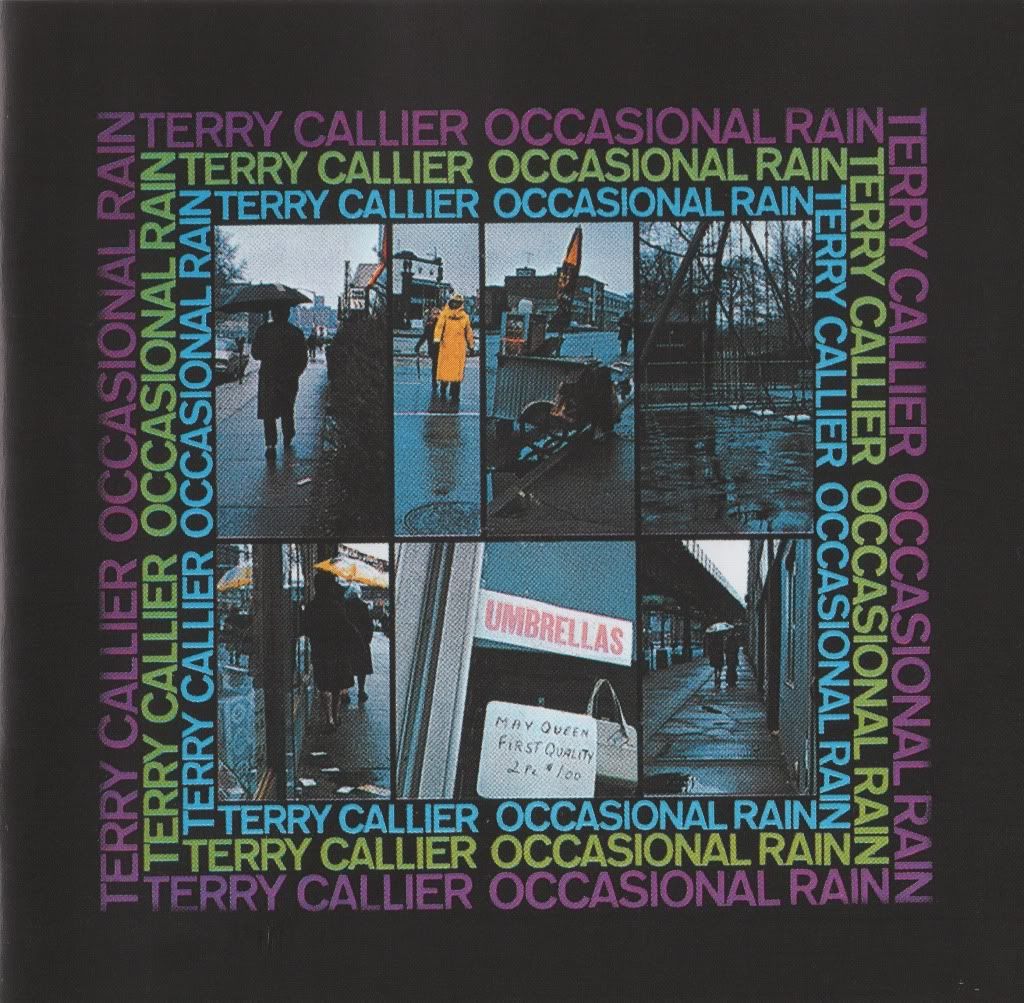Wednesday, November 2, 2011
Terry Callier - Occasional Rain
Though it seems most intrepid music searchers choose What Color Is Love for a first taste of folk/soul guru Terry Callier's music (I'm sure it has nothing to do with the fact that there's a naked woman on the cover), Occasional Rain is in my books just as worthy a place to start or continue appreciating Callier's totally unique style.
On paper, it would appear tough get too excited about this music--it's slow-moving, combines folk and soul with occasionally extravagant orchestral and choral arrangements, and Callier sings about social unrest, heartbreak and mystical insights in a husky baritone that's never far away from a wide, smooth vibrato. In spite of the fact that people have outright laughed when I played this for them, I've always loved Terry Callier's music. Maybe it's his deep sincerity or his ability to turn a profound phrase out of nowhere, but once you suspend your sense of being too cool to hear a man channel his deepest feelings into a pop music context, it's actually not that difficult to take this music seriously. Actually, I don't even know why I'm writing so defensively about Callier's music--this is an awesome album!
The only vestiges of Callier's folk debut (eight years old at the time of this recording) show up in a broken up blues called "Go Head On," which is used as segue material between the rest of the tracks, which amply demonstrate that something changed for Callier in the interim that suddenly made him capable of fusing black and white music (a bizarre artistic choice that few other black artists seemed interested in making) with an unadorned but brilliantly perceptive poetic instinct in his lyric writing. Combine his strange amalgamation of styles with the arranging skills of Charles Stepney (of Rotary Connection and later of Earth, Wind and Fire fame) and the brew becomes even more unusual--there's a Burt Bacharach-like schmaltz (especially on things like the bouncy "Ordinary Joe" and pop blues of "Sweet Edie-D" to these arrangements, but somehow it's always justified by Callier's passionate energy and words, which freely leap from one insight to the next without ever abandoning the consistent mood of each song.
Actually, I think in some places Stepney's production is actually one of the best things about this album--he seems to know just what to use and when, like the clean cello arrangement that accompanies Callier's spare guitar and vocal parts on "Blues for Marcus," and the spine tingling organ and twinkling choral interjections (that's Minnie Riperton singing soprano!) that make "Occasional Rain" the most psychedelic thing on the album. In other places the quality of the choral arrangements is absolutely hair-raising ("Lean On Me" is the best build-up on the album, and an excellent climax as well). The dusky mood and extemporaneous feel of "Trance On Sedgwick Street" foreshadows the epic grandeur of Callier's forthcoming works--revisiting these songs I can't help but think that Stepney's influence expanded Callier's songwriting imagination in a way that paved the path forward to his most distinctive work. Occasional Rain is a confidant for those moments of introspection and deep soul, and (for me, at least) it never fails to remind of the smoldering beauty that can be found in those quiet, honest spaces.
Subscribe to:
Post Comments (Atom)


1 comment:
Nice piece!
Post a Comment